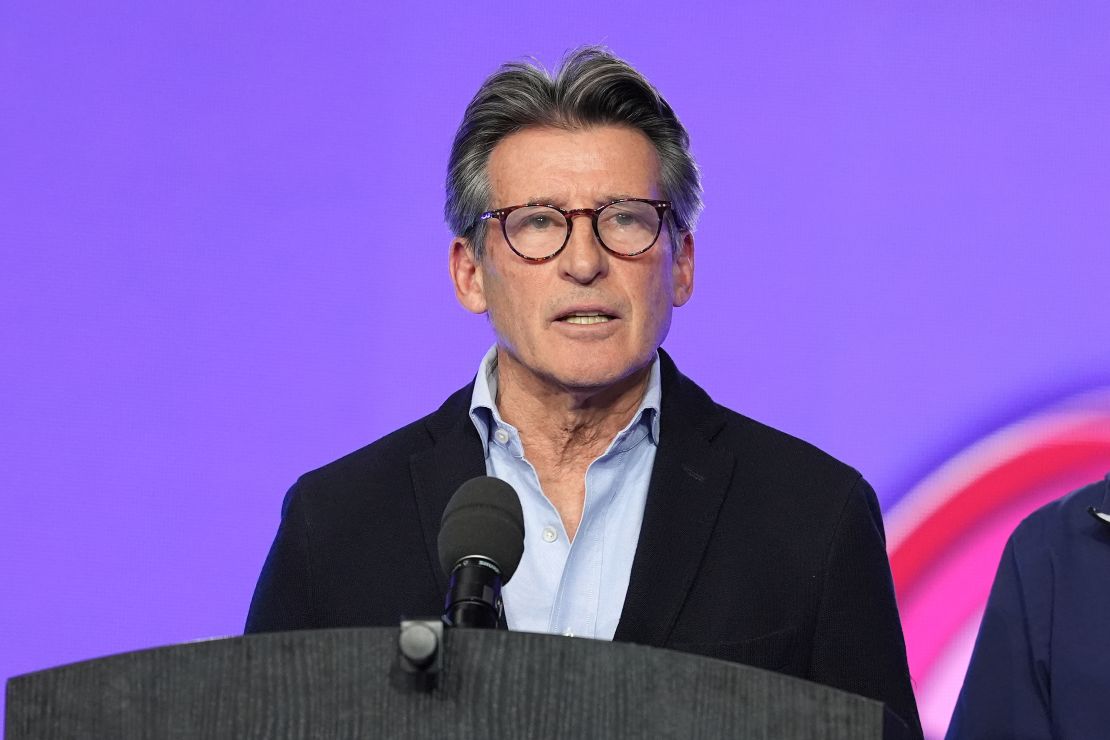CNN
—
World Athletics president Sebastian Coe has doubled down on his organization’s policy around transgender athletes competing in track and field, saying that the regulations are “here to stay.”
Just under a year ago, World Athletics announced that it would prohibit athletes who have gone through what it called “male puberty” from participating in women’s world rankings competitions.
The governing body for track and field said that the exclusion would apply to transgender women, banning some from competing in female track and field events.
“It was the right decision then, it’s the right decision now,” Coe told CNN Sport’s Amanda Davies at the world indoor championships in Glasgow, Scotland.
“Those regulations are here to stay, and if we have to defend them, we will, and we’ll defend them on the basis that it is absolutely vital that we protect, we defend, we preserve the female category.”
When the ruling was announced in March last year, Coe said that the decision came after deliberation with groups including World Athletics member federations, the Global Athletics Coaches Academy and the International Olympic Committee, as well as representative transgender and human rights groups.
However, some pro-LGBTQ rights groups criticized the decision as discriminatory following its announcement.
“We are beyond devastated to see World Athletics succumbing to political pressure instead of core principles of inclusion, fairness and non-discrimination for transgender athletes and athletes with intersex variations,” Hudson Taylor, founder and executive director of advocacy group Athlete Ally, said at the time.
Stonewall, an LGBTQ rights charity in the United Kingdom, called the rules “disappointing.”
CNN has reached out to Athlete Ally and Stonewall for comment on Coe’s interview.
In recent years, there has been a growing list of governing bodies which have restricted transgender women from competing in women’s divisions.
That includes swimming governing body World Aquatics, which says that transgender women would only be eligible to compete in the women’s categories if they transition before the age of 12 or if they don’t go beyond stage two on the five-stage Tanner scale for puberty.
World Athletics hasn’t clearly defined its definition of what constitutes having “been through male puberty,” which is a multi-year process beginning as early as age nine.
Although Coe spoke of testosterone as being the key determinant in performance, there remains debate in the scientific community about whether androgenic hormones like testosterone serve as useful markers of athletic advantage.
“There’s been a lot of work done on that area, and I am, amongst other people who are far more qualified than I am, to make this judgment pretty sure and secure that it does make a difference,” Coe said.

A 2021 study published in the British Journal of Sports Medicine found that trans women have comparable levels of hemoglobin – which help blood cells carry oxygen – to cisgender women, while their strength, lean body mass and muscular area also markedly decreased after 12 months of hormone therapy, though were observed to be higher than those of cisgender women.
Coe explained last year that World Athletics would set up a working group to evaluate the issue of transgender inclusion in track and field, a process he now said is up and running.
“That is important because I’m not a federation, I’m not the computer,” said Coe. “It’s important that we are always abreast of any scientific developments.”
Coe added that he thinks “it’s important for a sensible, grown-up federation to want to follow the arguments.”






